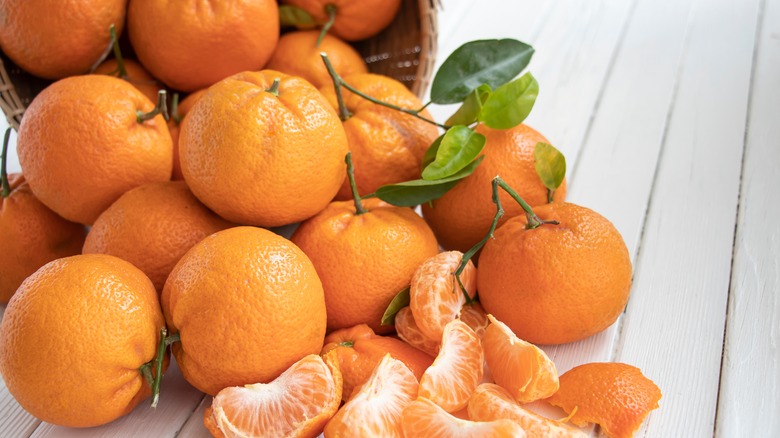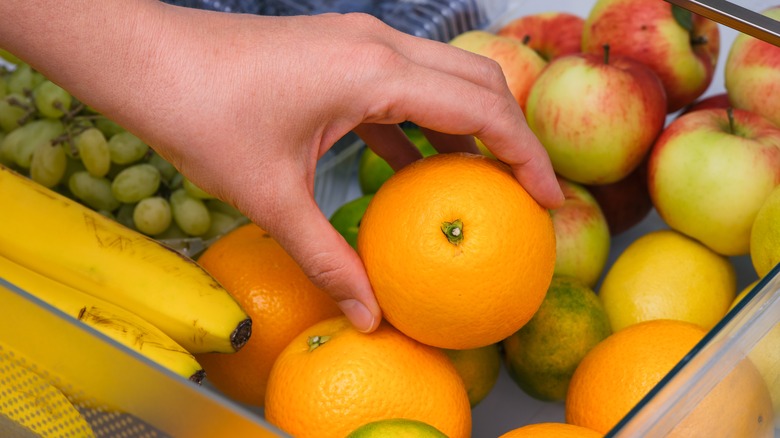The Absolute Best Ways To Store Oranges
Oranges are a hallmark of children's soccer games, Florida's landscape, and midday mimosas. When it comes to citrus oranges, top the tree.
This common fruit comes in many styles, each with its characteristics and functions. You'll find everything from seedless oranges to vibrant blood oranges at the grocery store — from seedless oranges to vibrant blood oranges. You may even find the ever-popular naval oranges. Each type is perfect for concoctions galore. Whether you're craving sweet or savory foods — or alcoholic or non-alcoholic drinks — oranges are sure to boost your flavors and always add a little zest. You can start your day with a fresh-squeezed glass of orange juice and top off a chicken stir fry with a decadent orange tart.
With so many recipes to try, oranges are best bought and often sold in bulk. Using all of your citruses before they go bad can therefore be tricky. So to avoid waste, you'll have to master the art of fruit preservation. After all, when life gives you oranges, you keep them fresh — and ready to be squeezed.
Store oranges inside the fridge in a well-ventilated bag.
Forgo the countertop in favor of the refrigerator. Due to its cool temperature, the fridge is optimal for oranges. Specifically, oranges do best in refrigerators between 45 and 48 degrees, according to Pittman and Davis. Though there's no need to break out the thermometer, any fridge will suffice.
Masterclass recommends keeping oranges in the crisper drawer inside the fridge. For comparison, countertop oranges have a shelf life of roughly a week. For a few days, however, citrus is fine at room temperature, says Bon Appetit.
As for what to store oranges in, keep the mesh bag handy. Oranges typically come in a red mesh bag, enhancing their vibrant orange color. But these bags also have a functional purpose. Airtight containers tend to make oranges soften quickly, restricting airflow. Meanwhile, mesh bags allow the air to circulate, keeping your fruit as high-quality as possible, according to The Seattle Times.
Keep oranges whole — though if you must cut them, store with a tight seal
Here's where plastic wrap comes into play. As a general rule of thumb, it's ideal for storing oranges whole, as the outer peel safeguards the interior fruit. Whenever possible, don't cut your oranges ahead of time; wedges will wilt and deteriorate much faster than those that remain intact.
However, not all is lost if you've already cut your oranges. All Recipes recommends covering slices with plastic wrap and sealing the wrapped citrus in an airtight container. Just like whole oranges, slices last longest in the crisper drawer of your fridge, but with a much shorter lifespan of roughly half a week.
In storing cut oranges, Glad states that it's best to peel the rind, remove the orange's white pith, and separate it into chunks before the fruit hits the fridge. According to Real Simple, you can also store oranges in the freezer if you're planning to enjoy your citrus later. Frozen oranges make for refreshing summer smoothies that will have you rushing back to the grocery store to pick up another mesh bag of oranges.


